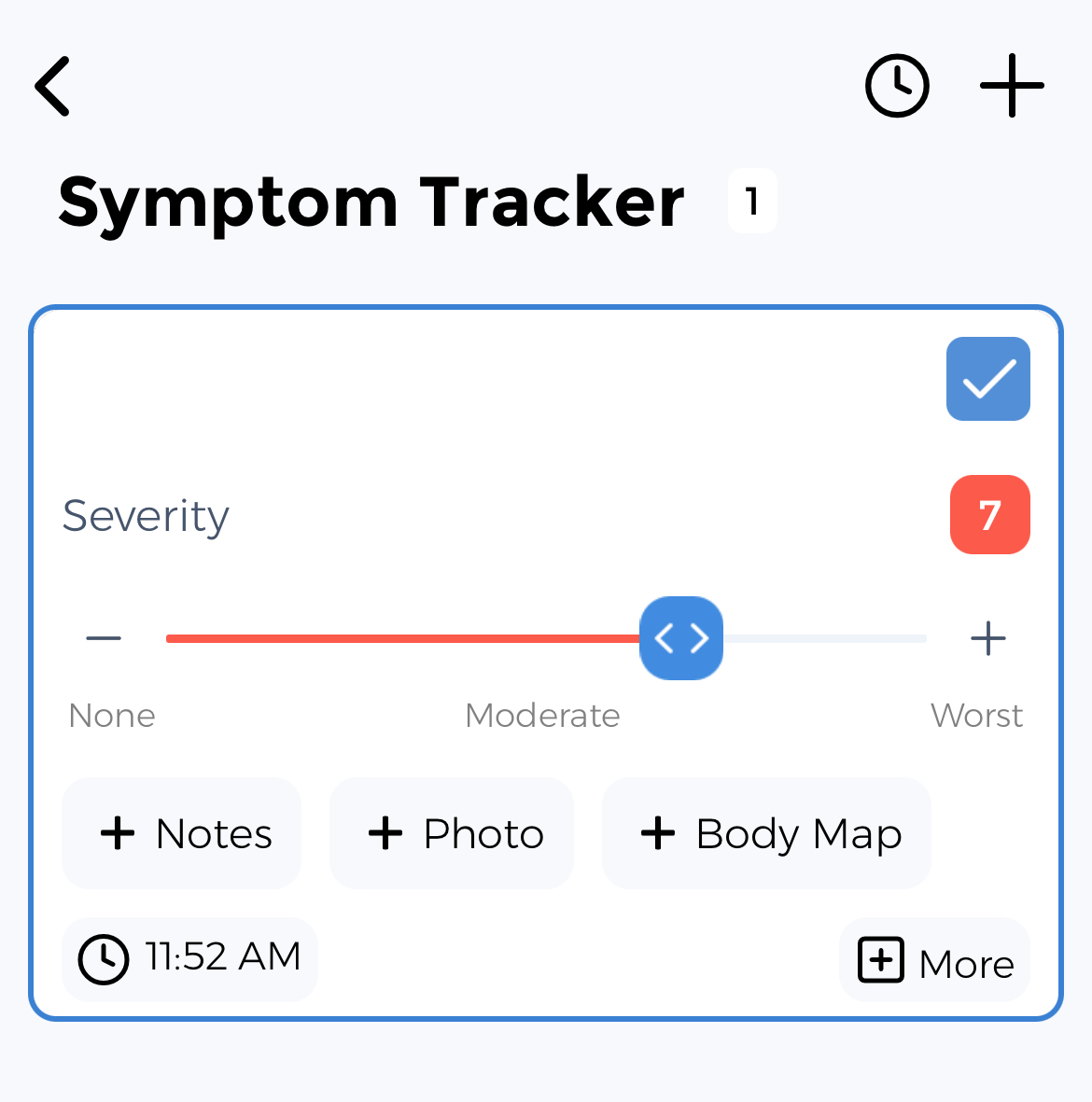Diabetes Type 2 Symptom Tracker: Your Health Assistant
Living with Diabetes means dealing with increased thirst, frequent urination, increased hunger, and more. But here's the truth: Data is your most powerful tool. Every logged symptom reveals patterns—so you can take informed action.
Type 2 Diabetes affects how your body metabolizes glucose. Tracking blood sugar levels, diet, exercise, and medication helps maintain stable glucose levels.
Key Diabetes Symptoms You Should Track
Struggling with symptoms like these? Tracking them reveals patterns, triggers, and how they impact your daily life.
Increased thirst
Frequent urination
Increased hunger
Fatigue
Blurred vision
Slow-healing wounds
Track Your Diabetes Type 2 Treatments
Tracking how these common treatments affect your symptoms can help you and your healthcare provider optimize your care plan:
Our tracker helps you monitor when you take medications and how they affect your symptoms over time.
Standardized Diabetes Type 2 Assessments
Complete these evidence-based assessments in the App to measure your severity and monitor your progress:
⚡ Knowledge Is Your Superpower
The difference between feeling overwhelmed by Diabetes Type 2 and feeling in control starts with data. When you track your symptoms, you transform uncertainty into clarity. Every data point brings you closer to understanding your unique patterns.
It's free to try for anyone—whether you're managing your own condition, supporting a child, helping an aging parent, or assisting a partner. Our tracker adapts to your specific role in the health journey.
How the CareClinic Diabetes Symptom Tracker Adapts to Your Needs
Adults
Caregivers
Parents of Children
Young Adults
Your Complete Diabetes Type 2 Management Toolkit
Uncover Patterns & Insights
Map your Diabetes symptoms like a detective solving a case.
Understand Your Medication's Impact
Turn guesswork into strategy. See how treatments affect your well-being with clear health insights.
Objectively Measure Your Progress
Use clinically validated tools to objectively measure your progress.
Other Tools You May Like...
Plus 2 more specialized tracking tools available
Access All Tracking ToolsAlso Supports Other Conditions Like
Hypertension Tracker
Hypertension warriors use our tracker to monitor headaches, shortness of breath.
Obesity Tracker
Obesity warriors use our tracker to monitor weight gain, shortness of breath.
Coronary Artery Disease Tracker
Coronary Artery Disease warriors use our tracker to monitor chest pain, shortness of breath.
Major Depressive Disorder Tracker
Major Depressive Disorder warriors use our tracker to monitor persistent sadness, loss of interest.
Success Stories from Our Community
"I've tried other methods to manage my Diabetes Type 2, but nothing gave me the insights this tracker did. I finally gained more good days than bad after years of struggle."
"I'm not tech-savvy, but this tracker was easy to use even for me. Combining data from the journal with my weight tracker showed important correlations, which helped me slept better than I had in years."
Take Control of Your Diabetes Type 2 Journey
Transform from feeling like a passive patient to becoming an informed self-advocate. Join thousands who've discovered new insights about their condition.
Designed by people who understand the daily challenges of managing chronic conditions, we're here to support you and your ❤️ ones.
Download Your Diabetes Tracker NowYour Data is Protected
Private & Secure
HIPAA Compliant
GDPR Compliant
Never Sell Data
Your data is yours: You get full control over who can view your information. CareClinic keeps all your data secure and encrypted.

